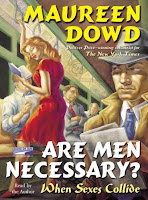
Stanley Elkin's Mrs. Ted Bliss (PS3555 .L47 M76 1995) is the story of a Russian Jewish widow who lives in a deteriorating condo in Miami Beach. The novel takes her from about age 67 to 82. Over time, Mrs. Bliss never stops grieving for her dead husband and son. When asked by a therapist to describe her interests, she can only think of card games and TV. Later, even these interests elude her. Her surviving children live far away, and her old friends keep dying. What keeps Mrs. Ted Bliss from being the most depressing book ever written? Partly just the existence of so many other depressing books, but there's more than that. No clues, however, can be found in the book-jacket description, which makes Mrs. Bliss seem to have just stepped out of Harold and Maude:
But Mrs. Ted is stepping out. She receives the attentions of Alcibiades Chitral from Venezuela, as well as Tommy "Overeasy" Auveristas, and Manny from the building. Why are they all so interested in Ted's Buick LeSabre?
They're interested in the LeSabre because Mrs. Bliss sold it to a criminal who's been sent to prison for 100 years. Elkin has created a prison so captivatingly implausible that we're forced to keep a bit of ironic distance from the characters and their plights. I haven't been to prison, but I'm pretty sure that in real life prisoners don't get to take flying lessons--and certainly not from their unlicensed fellow inmates.
Similarly, Mrs. Bliss's therapist is a follower of a school of therapy, Recreational Therapeusis, that exists only in Elkin's imagination. The movement's modest goal is for the "therapeusisist" to help the the client find life-enriching hobbies. Yet Elkin has created a world where Recreational Therapeusis is wildly controversial, "a sham, fodder for old call-in shows."
Mrs. Bliss lives in a semi-alternative universe, which makes her a semi-imaginary character, which keeps us from becoming overwhelmed by her despair. But Mrs. Bliss's kind of wisdom also makes her deserve respect: at the end of the book, she's comforting a minor character, someone she doesn't really like and considers crazy. She's thinking, "Family, friends, love fall away. Even madness stilled at last. Until all that's left is obligation." A kind of wisdom. I leave the book feeling sad, but certainly respectful of the character and her bravery in the face of difficult memories and responsibilities. Mostly, though, I just enjoy the semi-mad world of Stanley Elkin's last book.















